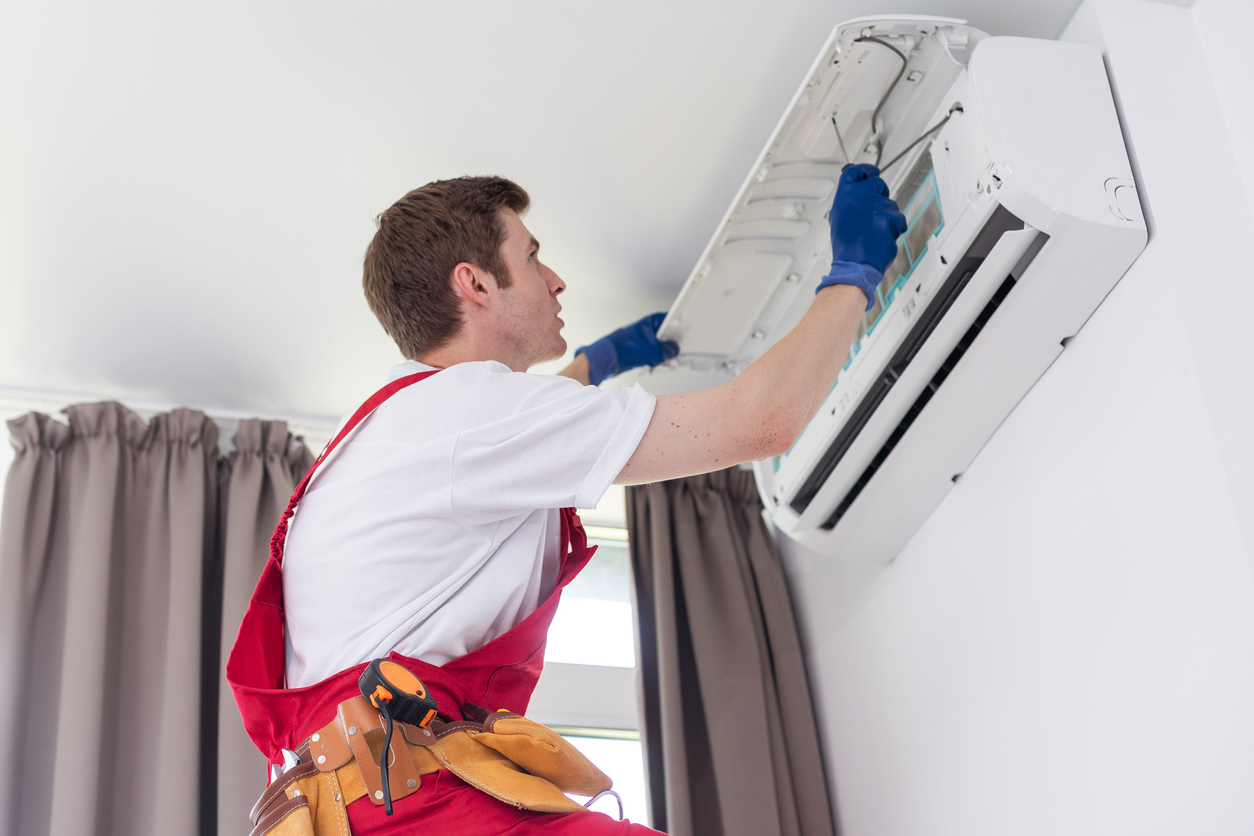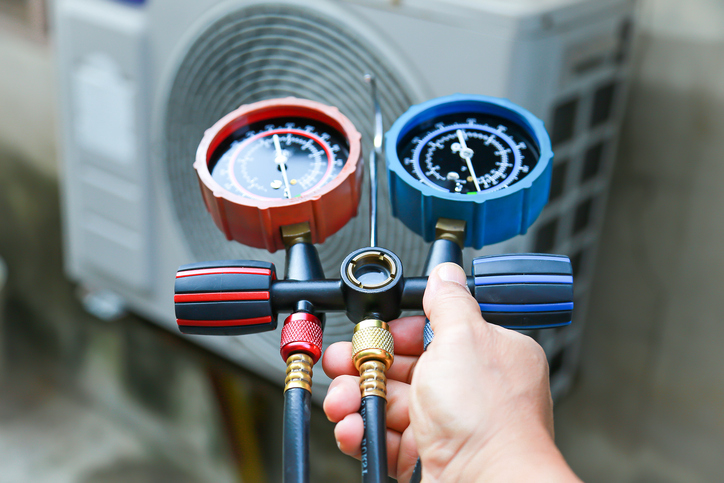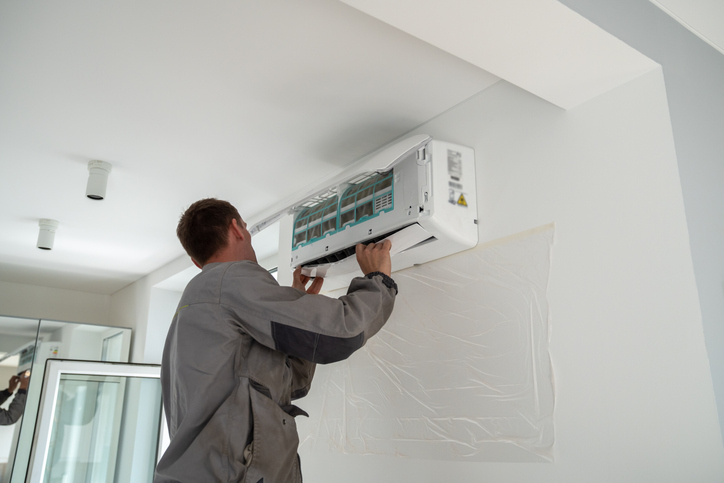Air conditioning systems play a vital role in maintaining comfortable temperatures in our homes, but they also have a significant impact on indoor air quality (IAQ). Regular tune-ups ensure that your system is functioning optimally, providing not only cool air but also contributing to a healthier indoor environment. In this article, we’ll explore how an AC tune-up can enhance your home’s air quality by reducing pollutants, allergens, and other harmful particles while improving overall comfort.
1. The Role of Air Conditioning in Indoor Air Quality
Air conditioning units do more than regulate temperature—they actively filter and circulate the air inside your home. If left unchecked, these systems can accumulate dust, pollen, mold, and other allergens, which will then be recirculated through your living spaces. A tune-up addresses these issues, ensuring your air remains clean and safe to breathe.
2. Filter Cleaning and Replacement
One of the most critical components of a tune-up is inspecting and replacing the air filter. Filters trap dust, dirt, and allergens, preventing them from entering the air in your home. Over time, these filters become clogged and less effective. During a tune-up, HVAC professionals will replace or clean the filters, enhancing the system’s ability to capture pollutants and improving your indoor air quality.
3. Ductwork Inspection and Cleaning
The ductwork in your home carries air from your AC system to different rooms. If ducts are dirty or clogged with debris, dust, or even mold, these contaminants can circulate throughout your home. During a tune-up, technicians inspect the ductwork for signs of buildup and damage, ensuring it is clear and free of obstructions. This significantly reduces airborne contaminants and helps maintain a cleaner living environment.
4. Humidity Regulation for Optimal Air Quality
Indoor air quality is influenced by humidity levels. High humidity can encourage mold growth and exacerbate respiratory issues, while low humidity can cause dryness and irritation in the nose and throat. AC systems help regulate indoor humidity, and a tune-up ensures that this function is working properly. HVAC professionals check the system’s dehumidification capacity to maintain ideal humidity levels, preventing mold and dust mites from thriving.
5. Improving Ventilation
Proper ventilation is essential for good air quality. During a tune-up, technicians check to ensure that your system is ventilating effectively by circulating fresh outdoor air into your home and expelling stale indoor air. Good ventilation reduces the concentration of indoor pollutants, providing you with cleaner, more breathable air.
6. Coil Cleaning and Its Impact on Air Quality
Both the evaporator and condenser coils in an air conditioning unit can accumulate dirt and grime over time, reducing the system’s efficiency and affecting indoor air quality. Dirty coils can harbor mold and bacteria that get blown into your living space. A thorough cleaning of these coils during an air conditioner tune-up improves the system’s cooling efficiency and prevents harmful particles from contaminating your air.
7. Reduction of Allergens and Pollutants
During a tune-up, HVAC professionals not only clean the filters and ducts but also inspect other components like the blower and motor to ensure everything is functioning properly. A well-maintained AC system is better equipped to filter out common allergens such as pollen, pet dander, and dust mites, which can worsen allergies and asthma symptoms.
8. Ensuring Proper Airflow
Proper airflow is essential for maintaining a healthy indoor environment. Restricted or uneven airflow can cause areas of stagnation, where dust and other pollutants collect. A tune-up helps identify and correct airflow issues by checking the blower, fan, and ducts, ensuring consistent and even distribution of clean air throughout your home. This reduces the likelihood of airborne contaminants settling in specific areas.
9. Preventing Mold and Bacterial Growth
Mold and bacteria can easily form in AC units that are not regularly maintained, especially if the system struggles to control moisture. Tune-ups involve checking for any signs of mold growth, particularly in areas like the condenser coils, ducts, and drip pan. By addressing moisture issues and cleaning key components, a tune-up can prevent mold spores and bacteria from being distributed throughout your home.
10. Energy Efficiency and Its Indirect Effect on Air Quality
While energy efficiency may not seem directly related to air quality, it plays a significant role. A well-maintained AC system operates more efficiently, which means it cycles air more effectively and maintains optimal indoor conditions. Energy-efficient systems also produce fewer emissions, indirectly contributing to a healthier home environment by reducing the reliance on fossil fuels and decreasing air pollution.
A tune-up is essential not only for keeping your home cool but also for ensuring the air you and your family breathe is free from harmful pollutants and allergens. By focusing on various aspects of air conditioning maintenance, this process contributes significantly to improved indoor air quality. Regular maintenance will enhance the performance of your AC system, prolong its lifespan, and protect the health of your household.
Is your air conditioning system overdue for a tune-up? Schedule an appointment with a certified HVAC professional from our team at John’s Air Conditioning and Heating Service at (813) 689-2722 to improve your indoor air quality and enjoy a cleaner, healthier living environment!











